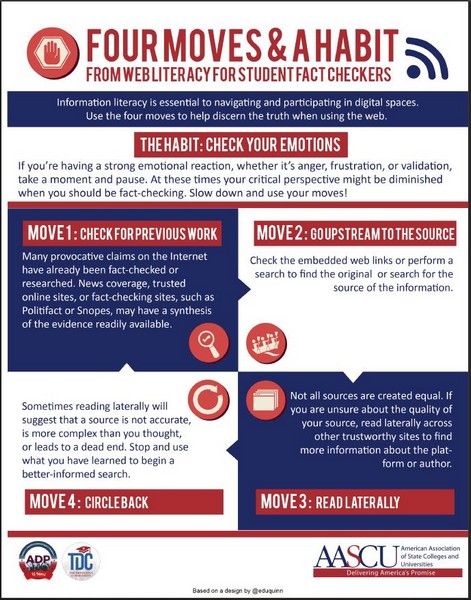In 2017, researchers from the Stanford History Education Group (SHEG) under Stanford University conducted an investigation on the capability of “expert” readers in evaluating digital information.
These readers in particular were historians and undergraduates from the university, as well as professional fact-checkers from renowned news organisations.
The research built upon a study that SHEG carried out between 2015 and 2016 involving over 7,800 students from various educational, economic and geographic backgrounds. In that study, most students were unable to differentiate between accurate and misleading information.
That finding was similar among historians and college students, who failed to assess the credibility and reliability of official websites and online search results related to political and social issues.
In contrast, fact-checkers were the most successful and the quickest in the study. The researchers observed and recorded skills that these proficient professional readers employed to scrutinise digital information more effectively than the other participants.
These important skills are described in brief below. To find out more about how to better evaluate online information, watch Crash Course Navigating Digital Information on YouTube:

Reading laterally
One of the skills that the fact-checkers utilised – and perhaps the most vital in the digital era – was lateral reading.
When determining the authenticity of a website, reading laterally means Internet users leaving the site to search for more details about it from other digital sources – news outlets, fact-checking websites, Wikipedia, etc. – by opening additional browser tabs.
However, if they read vertically or solely rely on the information from the website in question, they will end up becoming susceptible to misleading and unreliable signs, including supposedly professional website layout and legitimate-looking web links.
Lateral reading is crucial in understanding the origin, context and perspective not just of an organisation, but also evidence such as photos, videos, data and infographics, to ascertain its trustworthiness.
With practice, Internet users will find this skill less of a hassle and more of a habit when paging through the Internet to better identify any misinformation and disinformation.
Refraining from clicking immediately
In the process of reading laterally during the study, the researchers noticed that fact-checkers were more selective of online sources when using the search engine compared to the historians and college students.
The skill was referred to as “click restraint”; instead of simply choosing the top few search results in the first page, fact-checkers reviewed as many as possible thoroughly before proceeding to click on them.
This is because websites that are ranked high in search results might not necessarily provide the most reliable information, for their position may be influenced by search engine optimisation.
Therefore, having the patience and making the time to scan and filter search results can help Internet users make well-informed decisions about which link to go first when investigating any information.
Knowing the right requirements
In general, there are three essential requirements fact-checkers need when it comes to judging the credibility of online information:
- The individual or organisation behind the information
- Claims by the individual or organisation and the evidence for them
- Information from other sources regarding the individual or organisation and their claims
The first requirement involves identifying who is behind the information and why the individual or organisation present it.
The second concerns claims coming from the individual or organisation – be they factual or an opinion – especially in terms of the evidence that support those claims and the reliability of the source where the evidence originates.
The third looks at context and perspective from other sources, which can be achieved through the aforementioned lateral reading and click restraint, as well as the ability to think critically.
Above all, when approaching online information it is best to have a healthy level of scepticism without verging into cynicism; while it is good to question its truthfulness or usefulness, it will not be helpful to have a general distrust towards every information encountered.






